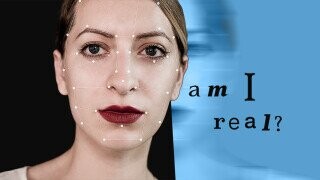Your Face Is Faker Than a Deepfake

If a picture used to be worth a thousand words, in the age of deepfakes, it’s now worth a thousand lies, too. To make matters worse, recent research reveals that most of us believe that fake faces appear more realistic than actual living, breathing ones, and therefore, we consider deepfakes to be more trustworthy.
“Our results show that people’s biases in perceiving artificial faces as real can then make them more gullible to information conveyed by such artificial agents,” study co-author Raffaele Tucciarelli explained in a press release. “As we live in times when more than ever before in human history, we are asked to judge the realness, truthfulness and trustworthiness of our social world, and what information we decide to trust can have far-reaching consequences.”
Don't Miss
Tucciarelli and his fellow researchers also discovered that when people find out they were tricked by a deepfake, they were less likely to trust any information from that point forward.
“This could lead to people disengaging with messages given to them in the future as they do not know who or what to trust,” study co-author Manos Tsakiris, professor of psychology at Royal Holloway, University of London, warned. “Educating audiences about such technologies and advancing their digital literacy may make us less gullible, but at the same time, it may make us, in general, less trusting.”
The good news is, Tsakiris and Tucciarelli found that while the real faces in their study were considered less realistic looking, they were considered more attractive. And so, looking phony at least looks good.